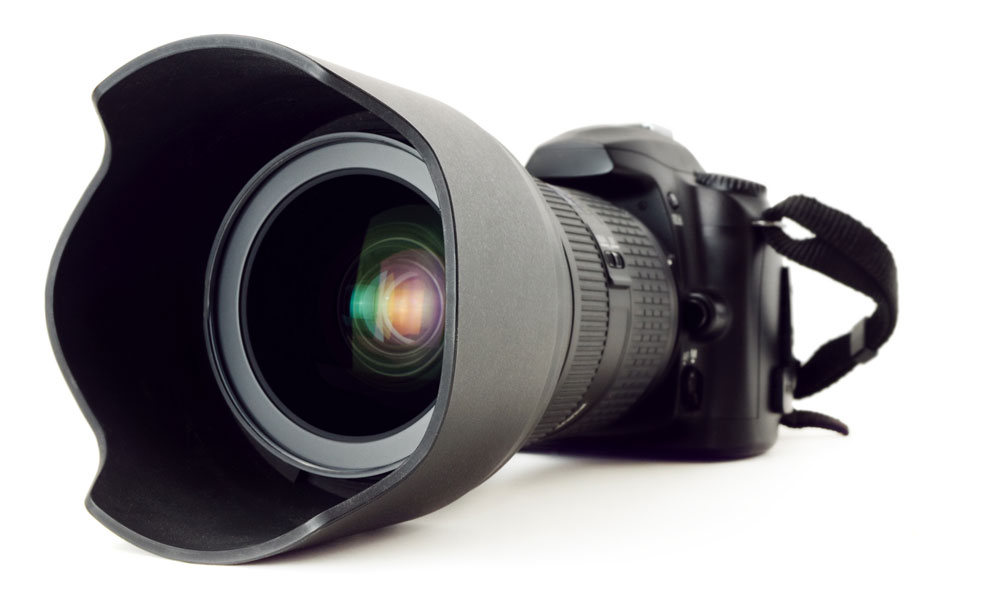
A Matter of Ownership: A Modest Proposal for Copyright on Social Media
A photographer’s successful lawsuit suggests a rough road ahead on the copyright front regarding social media. But associations, with their wide influence, could help pave a smoother path to shareability online by using Creative Commons licenses on the content they create.
A photographer’s successful lawsuit suggests a rough road ahead on the copyright front regarding social media. But associations, with their wide influence, could help pave a smoother path to shareability online by using Creative Commons licenses on the content they create.
In January 2010, social media had one of its first big tests as a chronicler of events. And we’re still dealing with one of the biggest failings of that time.
A massive earthquake in Haiti led to the deaths of more than 100,000 people. With information from the country scarce due to the destruction, social media gurus, journalists, and others were looking for information from whatever sources they could find.
One of those journalists, an editor for Agence France-Presse (AFP), spotted a series of photos on a Twitter page, paid the original poster, and uploaded them to the Getty Images wire—not an uncommon practice with images of a breaking news story. The photos then spread like wildfire. Picked up by traditional media outlets, they literally became front-page news.
We’ve created this hugely important world where we communicate our big ideas, but we’ve done a poor job of respecting people’s hard work in the process. However, there needs to be room for compromise here, or we’re losing the value of the shiny new platform in the process.
But what happened next has the potential to change the share-alike nature of the web forever.
See, those photos were taken by Daniel Morel—a professional freelance photojournalist from Haiti with decades of experience working for news agencies such as the Associated Press. Problem was, Morel had a contract with Corbis Images, not Getty—and he wasn’t the one AFP paid for them. When the AFP editor uploaded those photos without his permission, Morel lost out on income. So he sued.
(Note: In the interest of full disclosure, The Washington Post Express, the paper I worked for at the time, ran one of Morel’s Haiti earthquake photos, as noted on page 37 of this linked legal document. As a page designer, I was involved in the photo-editing process for the issue, but I can’t say with certainty whether I dealt with that image.)
Morel settled out of court with a number of media outlets, including The Washington Post and CNN. But a lawsuit involving the wire services didn’t end until last week, when Morel won—to the tune of $1.2 million.
It’s too early to know exactly what the impact of the suit and its final outcome will be (the wire services almost certainly will appeal), but suffice it to say that this could really change how we share photos online.
Regarding Creators’ Rights
The lawsuit has given the wire services something of a black eye, but the decision has drawn a mixed reaction. Many content creators believe the photographer was wronged by some fairly sizable media outlets, while others worry about the long-term ramifications for social media.
One early sample of the former came in a 2010 piece by the British Journal of Photography‘s Olivier Laurent: “What is truly at the heart of this case … is the blatant disregard for photographers’ rights the journalism community is revealing.”
The National Press Photographers Association spoke to this issue after Friday’s jury verdict for Morel. “This ruling is important because far too often we find that photographers don’t have the power to stand up to those that infringe with impunity,” the NPPA’s Mickey Osterreicher told The New York Times. “I hope that this sends a message, but in reality we need a cultural change so that once again photographs are valued.”
But an argument I ran across on the technology forum Hacker News got me thinking bigger-picture about all this. The user who posted it, who uses the name strict9, doesn’t necessarily like AFP and Getty’s practices, considering them hypocritical. But strict9’s post did raise concerns about what this might mean for the web. “Why is it OK to quote what someone said for a news article, but not [OK to] use their photo with proper attribution? Because they spent a couple hundred dollars on a camera? Why is a picture some sacrosanct object but what someone says worthless? You’re pressing a button on a camera and then pressing some buttons on a computer later,” the user wrote. “The balance of power is completely wrong, and photographers, musical artists, and other ‘creatives’ only shoot themselves in the foot by slathering watermarks, issuing crazy copyright notices, and using DRM [digital rights management technology] on their photos/creative works.”
I think that gets down to the heart of it for a lot of users on social media. We’ve created this hugely important world where we communicate our big ideas, but we’ve done a poor job of respecting people’s hard work in the process. However, there needs to be room for compromise here, or we’re losing the value of the shiny new platform in the process. Just like the whole people-saying-stupid-things situation, having a strong policy is going to be key here.
Adapting for Shareability
Associations need to be mindful of the balance. It’s too easy to take photos that you don’t own the rights to, to treat the content without the respect it deserves. Association messaging on social should set the standard for everyone else.
So with that, I’d like to propose a good way to balance social shareability with creator rights: Creative Commons. The nonprofit initiative founded by Harvard professor Lawrence Lessig has been around for more than a decade, and it’s a pretty vibrant part of the internet, thanks in part to Flickr’s decision to allow photographers to license their content under a Creative Commons license. (Wikimedia Commons is another space that offers such free-to-use content.)
If you need photos for your content, this is a good place to start—especially if you’re struggling to budget for the increasing need for images online. But don’t just take from the Commons: Give back. Associations create a lot of content—around their events, their industry initiatives, and their industry’s people. This would seem like a great opportunity to be part of the solution, rather than the problem. If you’re taking photos of your event, for example, put a Creative Commons license on the work that allows free commercial or noncommercial usage. It gives the idea room to spread without giving up your copyright on the photo. You don’t have to put all of your content out there with the license, but it might be beneficial to put out some, especially things that have broader public appeal. (But hey—don’t be afraid of spending money on a photo you want. Camera-slingers have to eat, too.)
One caveat to this point, though: As the recent situation between media organizations and the White House shows, the ability to share freely shouldn’t mean that you’re the only show in town, either. Freely share the message, but don’t use it as a way to control the messaging.
There likely will be more situations like Daniel Morel’s. He deserved to get paid for his work, don’t get me wrong. But for other copyright owners, social media is such a dynamic space that the rights of creators could be trampled on for years to come.
We need to find a common ground as an online culture. Associations—with their influence in so many sectors of business, the economy, and politics—are a great place to create that common ground for everyone else.
(iStock/Thinkstock)






Comments